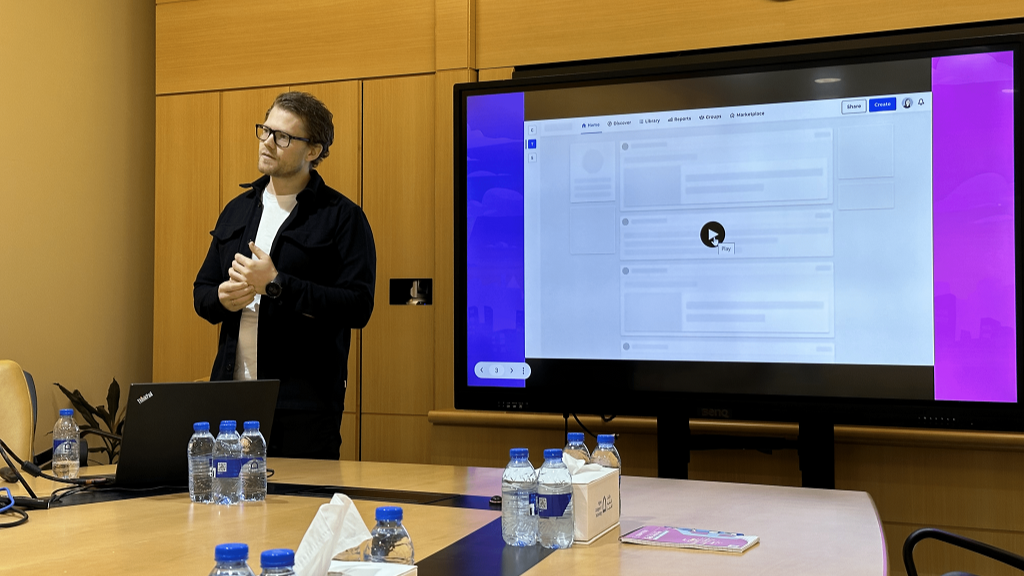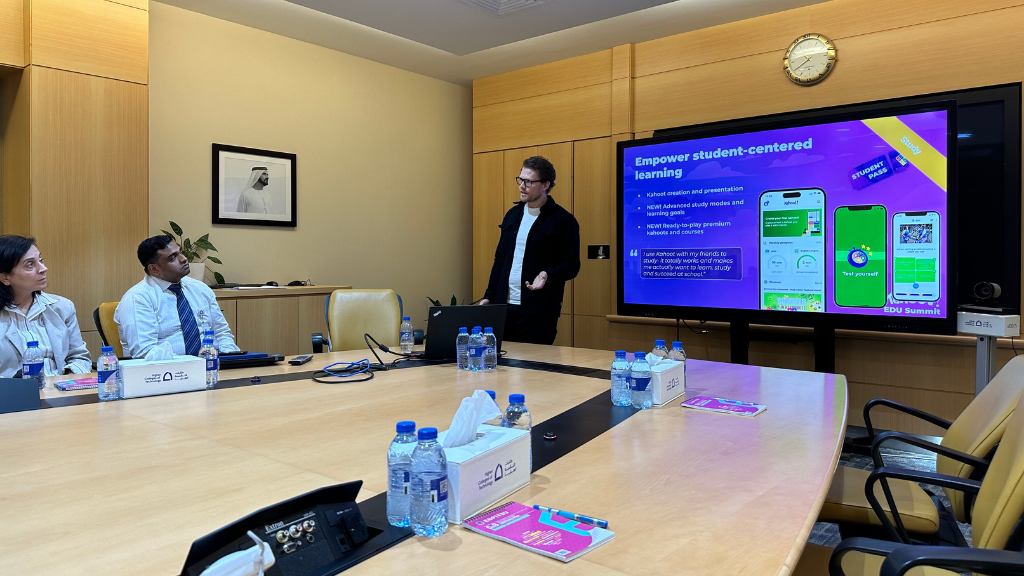Sarah’s team also evaluates the various educational technology tools available on the market and works with the academic divisions to decide which tools to purchase.
Back in 2019, several instructors from the English Communication department were using Kahoot! in their classroom. After experiencing the success of using Kahoot! among students and professors, the engineering faculty members expressed their desire to also use Kahoot! for instruction. HCT decided it was time to purchase a site license. They knew that if the engineering faculty were finding value in this tool, other departments would as well.
Together with her colleagues, Sarah started rolling out a Kahoot! site license in November 2019 and quickly onboarded hundreds of teachers. HCT planned the implementation in strategy focusing on four main areas.
- Creating a communication plan to demonstrate the value of the tool
- Organizing professional development to train staff
- Supporting the system through the EdTech Learning Community
- Fostering word of mouth and early adoption
HCT did a lot of communication and training to demonstrate the tool and its value, so everyone was able to decide whether they wanted to join Kahoot! and when. For example, the teaching with technology team published a series of posts about Kahoot! and other learning technology tools, as well as additional resource recommendations, on their EdTech blog to which many faculty members subscribe.
Professional development is mission-critical for new technology
When adopting a new learning technology tool at a system-wide level, it is important not only to provide information about the tool, but also to support faculty in the implementation of the tool with relevant professional development. Here are some of the activities the institution ran during the implementation of their Kahoot! site license:
As part of formal professional development, HCT offers a course called Creating Engaging Formative Quizzes in Kahoot!. In this course, instructors go through the technical aspects of creating a kahoot, and then the faculty are asked to try hosting a kahoot with their students and come back with reflections on how it went. HCT started offering this course before site-license implementation, and it was part of the reason faculty were so excited to start using Kahoot! in the classroom.
After the site-license implementation, HCT started conducting two additional courses called Creating Trackable Flipped Classroom Content and Adding Interactivity in your Online Class. These courses don’t show the technical aspects of Kahoot!; rather, they demonstrate how the tool can be used as part of pedagogically-sound teaching strategies.
HCT has now offered over 55 sessions to approximately 1500 participants that demonstrate how faculty can use Kahoot! in their classrooms. That is over 6400 hours of professional development addressing the implementation of Kahoot!.
Results of implementing a Kahoot! site license at HCT
Thanks to a combination of an efficient process for implementing a site-license and extensive word of mouth, HCT quickly onboarded hundreds of faculty members in November 2019. They were also able to offer professional development to help faculty create and launch kahoots for their students.
Just a few weeks after launch, HCT had 305 Kahoot! members and by mid-June, over 800 people were using the license. So far, teachers at HCT have created almost 1,000 unique kahoots, and that number is quickly growing as a new academic year starts.
Since launching the site-license, over 1,900 student-paced Kahoot! challenges have been launched and over 6,800 live sessions have been hosted with more than 86,000 participants. These numbers demonstrate how quickly HCT faculty have adopted and implemented Kahoot! in their classes and how students have been actively participating in the kahoots and continue to do so.





